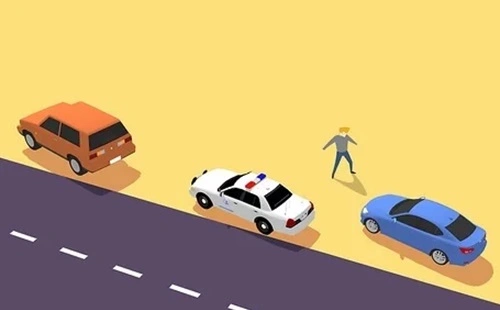Yes, brake checking someone is illegal in most cases in the United States. Brake checking, or deliberately slamming on your brakes to force the driver behind you to stop abruptly, is considered reckless driving and poses significant safety risks. This behavior can lead to severe legal consequences, including fines, criminal charges, and civil liability.
What Is Brake Checking?
Brake checking is an aggressive driving maneuver where a driver intentionally brakes suddenly in front of another vehicle. This action is often done out of frustration or anger, typically in response to tailgating or perceived road rage. The sudden braking forces the driver behind to react quickly, potentially causing rear-end collisions or chain-reaction accidents.
Why Brake Checking Is Illegal
1. Reckless Driving
- In most states, brake checking is classified as reckless driving because it demonstrates a willful disregard for the safety of others. Reckless driving laws vary by state but often result in fines, license suspension, or even jail time.
- For example, California Vehicle Code §23103 defines reckless driving as operating a vehicle in a manner that endangers the safety of persons or property.
2. Endangerment
- Brake checking not only risks causing accidents but can also escalate road rage situations. It creates unnecessary hazards on the road, affecting not just the driver being brake-checked but also nearby vehicles.
3. Intentional Act
- Unlike accidental braking, brake checking is an intentional action, which can lead to more severe penalties if proven in court. Intentional harm can elevate the offense from a traffic violation to criminal charges such as vehicular assault.
Legal Consequences of Brake Checking
1. Traffic Violations
- Brake checking is often cited as reckless or aggressive driving, which can lead to:
- Fines ranging from $100 to $1,000.
- Points on your driver’s license, which may result in higher insurance premiums or license suspension.
2. Criminal Charges
- If brake checking results in injury, death, or significant property damage, the driver may face criminal charges such as:
- Vehicular Assault: When a driver intentionally causes harm using their vehicle.
- Manslaughter: In cases where brake checking causes fatal accidents.
3. Civil Liability
- In accidents caused by brake checking, the driver performing the maneuver can be held liable for damages, including:
- Medical expenses for injuries.
- Repair costs for damaged vehicles.
- Emotional distress or punitive damages, depending on the severity of the incident.
4. Insurance Penalties
- Drivers found at fault for brake checking may face increased insurance rates or denial of claims.
How Authorities Prove Brake Checking
1. Dashcam Footage: Dashcams from either vehicle can provide clear evidence of brake checking behavior.
2. Witness Testimony: Statements from passengers or other drivers on the road may corroborate claims of reckless driving.
3. Accident Reconstruction: Experts can analyze tire marks, vehicle damage, and other evidence to determine if brake checking occurred.
Safety Risks of Brake Checking
1. Rear-End Collisions: Brake checking significantly increases the likelihood of rear-end accidents, which account for nearly 30% of all traffic crashes in the U.S.
2. Multi-Car Pileups: On highways or in congested traffic, brake checking can trigger chain-reaction crashes involving multiple vehicles.
3. Road Rage Escalation: Brake checking often exacerbates aggressive driving behaviors, creating volatile and dangerous situations.
Related FAQs
Q1. What is brake checking?
Ans: Brake checking is when a driver intentionally slams on their brakes to force the vehicle behind them to stop or slow down abruptly.
Q2. Is it always illegal to brake check?
Ans: Yes, brake checking is considered reckless driving in most jurisdictions and is almost always illegal.
Q3. Who is at fault in a brake-checking accident?
Ans: While rear-end collisions typically fault the trailing driver, brake checking can shift liability to the driver who performed the maneuver if proven.
Q4. Can I go to jail for brake checking?
Ans: Yes, in severe cases involving injury or death, brake checking can lead to criminal charges, including vehicular assault or manslaughter, which carry jail time.
Q5. How can I avoid being brake checked?
- Avoid tailgating other vehicles.
- Maintain a safe following distance to allow reaction time for sudden stops.
- Stay calm and do not engage in road rage.
Conclusion
Brake checking is illegal, dangerous, and carries significant legal and financial consequences. It is classified as reckless driving and can escalate to criminal charges if it causes injury or property damage. Drivers are advised to avoid aggressive driving behaviors, maintain safe distances, and prioritize safety to prevent accidents and legal trouble.


